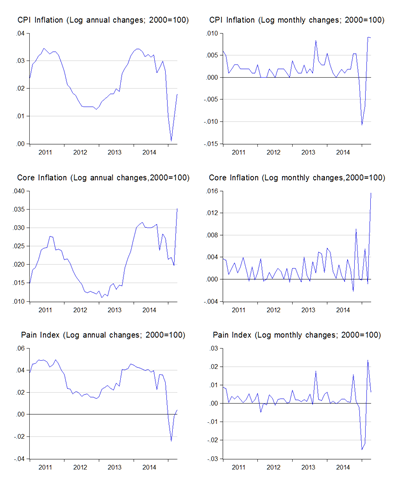A new IMF staff discussion note takes on global inequality (excerpt):
Causes and Consequences of Income Inequality: A Global Perspective
Widening income inequality is the defining challenge of our time…Not surprisingly then, the extent of inequality, its drivers, and what to do about it have become some of the most hotly debated issues by policymakers and researchers alike. Against this background, the objective of this paper is two-fold.
First, we show why policymakers need to focus on the poor and the middle class…Specifically, if the income share of the top 20 percent (the rich) increases, then GDP growth actually declines over the medium term, suggesting that the benefits do not trickle down. In contrast, an increase in the income share of the bottom 20 percent (the poor) is associated with higher GDP growth….
Second, we investigate what explains the divergent trends in inequality developments across advanced economies and EMDCs, with a particular focus on the poor and the middle class…Our analysis suggests that
- Technological progress and the resulting rise in the skill premium (positives for growth and productivity) and the decline of some labor market institutions have contributed to inequality in both advanced economies and EMDCs….
- Policies that focus on the poor and the middle class can mitigate inequality. Irrespective of the level of economic development, better access to education and health care and well-targeted social policies, while ensuring that labor market institutions do not excessively penalize the poor, can help raise the income share for the poor and the middle class.
- There is no one-size-fits-all approach to tackling inequality…More generally, complementarities between growth and income equality objectives suggest that policies aimed at raising average living standards can also influence the distribution of income and ensure a more inclusive prosperity.
Pretty self-explanatory I think, though the details are interesting, especially the role of financial market development in skewing the income distribution in developing economies. Something for weekend reading.




